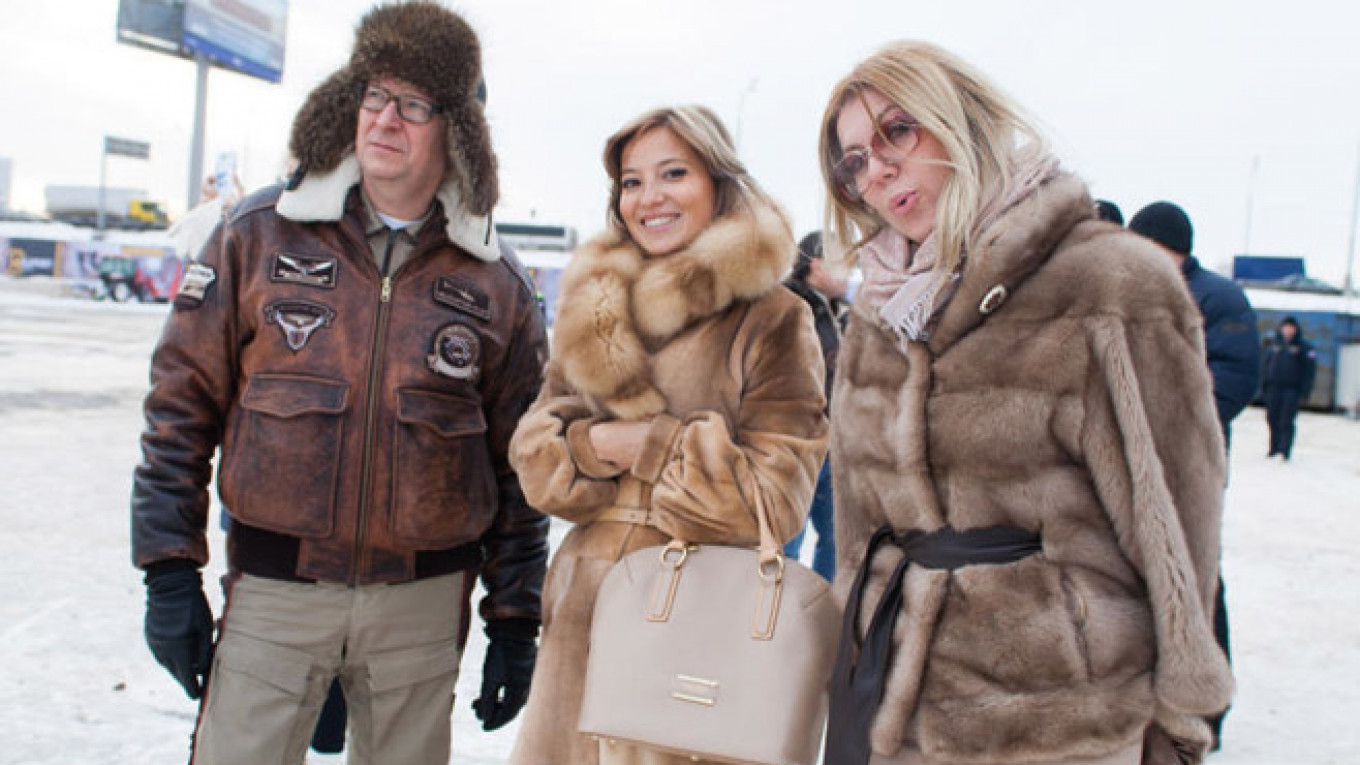Пуховик: down jacket, parka
Remember those "you know you've been in Russia too long when …" lists? Well, I have an addition. You know you've been in Russia too long when you have three dozen coats, jackets and other outdoor clothing for every conceivable and inconceivable weather condition, most of which involve cold temperatures and some form — or multiple forms — of precipitation.
My upstate New York outerwear consisted of a light coat, a winter coat, a raincoat and a dress coat. Throw in a parka and windbreaker, and call it a sartorial day.
Now let's take a look at my Moscow closet. For summer, the so-called "hot" season, I have лёгкий плащ (light raincoat), ветровка (windbreaker, recognizably from the word ветер — wind) и джинсовая куртка (denim jacket). Note that in Russian, куртка is any short outerwear jacket. A jacket that is part of a suit is called пиджак. If you are feeling fashion-forward — and are a woman — you can call your jacket жакет or жакетка.
By August or September, those options won't do. Out comes the плащ на подкладке (lined raincoat), which is heavier than the summer version and can withstand freezing rain, sleet and snow — you know, autumnal weather in the Russian capital. This might be плащ-тренч or just тренч (a trench coat).
Next to it in the closet is штормовка (storm jacket), which is a heavier, waterproof version of the ветровка. That usually covers dog walking in October and November. By December, I've pulled out three other jackets. The first is пуховик (down jacket), which is quilted and filled with пух (down, feathers). That one is lighter than my second winter jacket, a парка (parka), which is also down-filled and has a hood, but weighs so much that just putting it on is aerobic exercise.
In the world of Russian fashion, the terms парка and пуховик are often interchangeable today. But one kind of down jacket is always парка — that's the аляска (Alaska) or шноркель-парка (snorkel parka), originally a U.S. armed services parka that had a bright orange lining and a fur-lined hood. It zips up so high that there is only a small, narrow, snorkel-like opening at the top for important tasks like seeing and breathing.
And then I have дублёнка (sheepskin jacket) for those truly cold days midwinter. When I was young and moderately cool, I also had кожаная куртка (leather jacket), but never a косуха, a leather jacket that's usually black with the zipper set diagonally from the left hip to the right shoulder. That crosswise zipper gives the garment its name (from косо — slanting, at an angle) — and its supreme coolness.
That's the sportswear section of my closet. The work clothes section has пальто, an undeclinable noun that means any coat that is knee-length or longer. I used to have just one kind of heavy coat — зимнее пальто (winter coat). For Moscow, there is another kind — демисезонное (mid-weight, in-between), that is, what you wear in the fall. When you move to Moscow, you will discover that what you thought was зимнее пальто is actually демисезонное пальто.
After one winter in Moscow, you will also want to abandon your morals and buy шуба (fur coat) or maybe полушубок (fur jacket), if only to fit in with everyone else on the metro. You resist. By the second winter you begin to think: It's either me or the minks. By the third winter, you fit in.
Michele A. Berdy, a Moscow-based translator and interpreter, is author of "The Russian Word's Worth" (Glas), a collection of her columns.
A Message from The Moscow Times:
Dear readers,
We are facing unprecedented challenges. Russia's Prosecutor General's Office has designated The Moscow Times as an "undesirable" organization, criminalizing our work and putting our staff at risk of prosecution. This follows our earlier unjust labeling as a "foreign agent."
These actions are direct attempts to silence independent journalism in Russia. The authorities claim our work "discredits the decisions of the Russian leadership." We see things differently: we strive to provide accurate, unbiased reporting on Russia.
We, the journalists of The Moscow Times, refuse to be silenced. But to continue our work, we need your help.
Your support, no matter how small, makes a world of difference. If you can, please support us monthly starting from just $2. It's quick to set up, and every contribution makes a significant impact.
By supporting The Moscow Times, you're defending open, independent journalism in the face of repression. Thank you for standing with us.
Remind me later.








